Every day @realDonaldTrump DOJ doesn’t enforce the federal Comstock Act nearly 2,000 babies are killed with abortion pills. Please Prez Trump enforce Comstock.
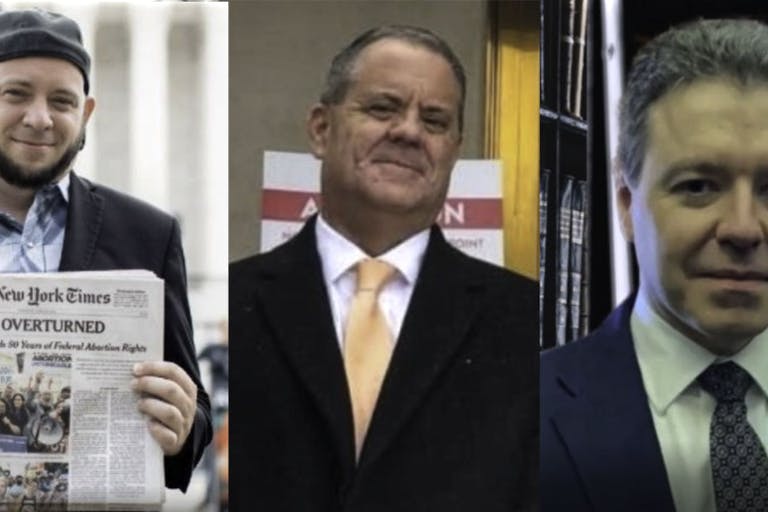
‘Every rebellion starts with hope’: Pro-life ‘crusaders’ use existing law with goal of ending abortion
‘Every rebellion starts with hope’: Pro-life ‘crusaders’ use existing law with goal of ending abortion
American reformer Anthony Comstock’s “crusade against vice” came about when he witnessed “the degradation of society in the 1860s” and put together a “set of moral laws” to combat it, according to pro-life attorney Mike Seibel. This set of moral laws became known as The Comstock Act. It was backed by Congress and eventually signed into law by President Ulysses S. Grant on March 3, 1873 — and 150 years later, some ‘crusaders’ see it as a possible path to end the deadly vice of abortion.
Rarely pictured without his backward black baseball cap, Mark Lee Dickson has been dubbed by some as a modern-day Anthony Comstock, due to his efforts to resurrect the Comstock Act in an effort to end abortion in America. Shortly after the Dobbs decision overturned Roe v. Wade in 2022, Dickson partnered with attorneys Jonathan Mitchell and Mike Seibel to lay out a plan to enforce this federal law. A list of news articles about Dickson’s pro-life ‘crusade’ dates back to July of 2022.
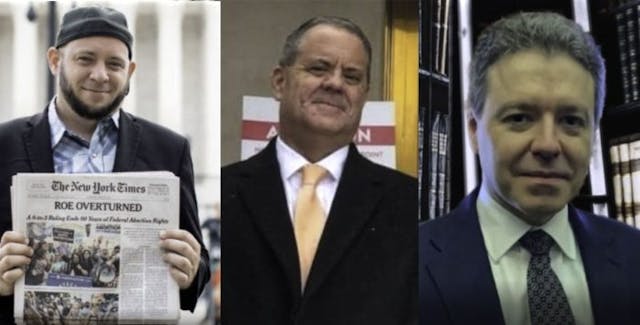
What does the Comstock Act prohibit?
At the time of its inception, the Federal Comstock Act addressed contraceptives, indecent materials, and abortion. However, “[s]ome of these laws have been updated over the years,” Seibel told Live Action News, noting that in the case of contraceptives and profanity, some restrictions in Comstock “have been overturned” and are “not going to be enforceable.”
But one of the major things in the Comstock Act that hasn’t been overruled by the Supreme Court, Seibel said, “is the abortion law, because Roe v. Wade went into effect prior to the Supreme Court ruling on Comstock.” When Roe was overturned, the federal Comstock Act was brought back into play.
“Lawmakers amended the law in 1971 to remove the prohibition on mailing contraceptives,” WNG.org reported. “The U.S. Supreme Court’s Roe v. Wade decision in 1973 rendered the remainder of the law ineffective, but it has continued to go unenforced even after the 2022 Dobbs v. Jackson Women’s Health Organization ruling overturned Roe.”
The Smithsonian’s National Postal Museum wrote that “The first federal law to deal with obscenity in the mail had been passed in 1865. Comstock’s law strengthened punishments and widened definitions of obscenity (adding information about abortion or contraception to the list of indecent matter). Shortly after the bill was signed, Comstock received a commission as a Special Agent of the U.S. Post Office, giving him the power to enforce his law.”
The museum added, “Comstock continued his crusade and remained a special agent for the Post Office Department until his death in 1915. Bits and pieces of his Act were challenged and eliminated over the years. Birth control advocate Margaret Sanger was an influential force in successfully challenging some of that legislation.” In 1965, “the Supreme Court decision… lifted all restrictions on the use of contraceptives by married couples.”
The remaining section on abortion (18 U.S.C. § 1461) essentially prohibits the mailing of “any article, instrument, substance, drug, medicine, or thing [that] may, or can, be used or applied for producing abortion[.]”
Alliance Defending Freedom’s (ADF) Senior Counsel Erik Baptist previously explained:
These longstanding federal laws prohibit the distribution of chemical abortion drugs by mail, common carrier, or express company. That means only the chemical drug manufacturer may deliver and distribute these drugs to abortionists around the country.
The manufacturer cannot use the U.S. Postal Service, FedEx, UPS, or any third-party courier to distribute chemical abortion drugs to abortionists, pharmacies, or women in the United States.
The Comstock Act does not prohibit the mailing of drugs to be used in cases of miscarriage, to save the life of a mother, or for other medical purposes. The law does not prohibit the shipping of the second drug in the abortion pill regimen, misoprostol, when the drug is to be used to treat medical problems including miscarriage and gastric ulcers, for example, as Live Action News previously reported.
In addition, Congress has consistently upheld the Comstock Act’s prohibition on abortion pill trafficking, and according to a joint report on the abortion pill published by Americans United for Life (AUL) and Live Action, “Congress and President Clinton acted in 1996 to expand Section 1462’s application to ‘interactive computer services,’ making it illegal to use the internet to ship or receive abortifacients.”
Modern Day ‘Vice’ Crusaders
For years, the media and pro-abortion organizations have viewed pro-life crusaders like Mark Lee Dickson — with his Sanctuary City for the Unborn Ordinances and Comstock Act inclusions — as a significant threat.
Inaccurately associating this pro-life effort with the “MAGA” movement, Rolling Stone reported in 2023, “Renewing enforcement of Comstock is an idea that has been promoted on the vanguard of the anti-abortion movement by activists like Mark Lee Dickson — one of the chief figures behind local ordinances banning abortion and abortion ‘trafficking’ — who has touted Comstock’s potential as a ‘de facto abortion ban.’”
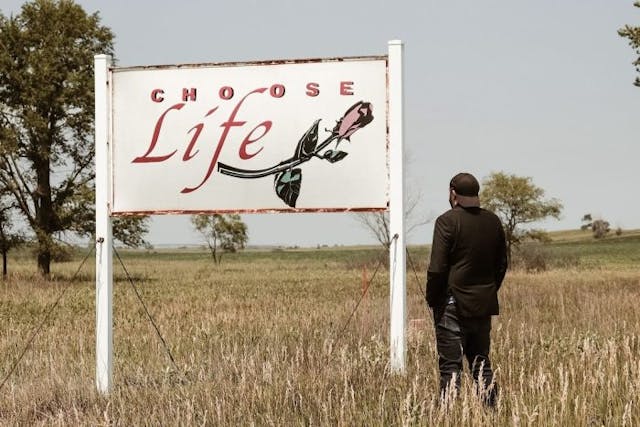
Authors Reva Siegel and Mary Ziegler detailed the modern use of Comstock in “Comstockery: How Government Censorship Gave Birth to the Law of Sexual and Reproductive Freedom, and May Again Threaten It,” set to publish in the Yale Law Journal.
A 82-page draft article located online highlighted Dickson and Mitchell, stating:
The idea for reinventing the Comstock Act began in a search for creative public-private enforcement strategies. In 2019, Mark Lee Dickson, a Texas activist and preacher, collaborated with Mitchell to develop a private enforcement mechanism, initially with the primary aim of preventing federal courts from adjudicating the constitutionality of the law.
The two created a model for what they called “sanctuary cities for the unborn” through ordinances that banned abortion within county or city limits, and authorized anyone, no matter how disconnected from an abortion, to sue a physician and anyone aiding or abetting them.
These ordinances became a blueprint for a state law, SB8, passed by Texas in 2021 and upheld by the Supreme Court later that year. Beyond exploring private enforcement, Mitchell came to his ideas about the Comstock Act by exploring related ideas in his 2018 law review article, The Writ-of-Erasure Fallacy, in which he argued that were a court to reverse an earlier opinion, that liberated the executive to ‘resume enforcing the statute, both against those who will violate it in the future and against those who have violated it in the past.'”
Mitchell proposed that Comstock could be read as a de facto ban on all abortion procedures, not just those involving pills sent through the mail.
The authors added, “And any abortion, Dickson and Mitchell reasoned, required the use of something sent in the mail.”
Mitchell explained, “Even though the Comstock law does not ban abortion literally, it bans the shipment or receipt of any abortion related equipment.”
Seibel agreed, pointing out that the law could essentially end all abortions. “The Comstock Act prevents the distribution of any abortion-causing agents or abortion paraphernalia through the mail and interstate commerce. So that would include abortion pills and equipment and thwart mail order abortion distribution,” he previously told Live Action News.
According to Seibel, “the majority of abortions are being done by the [abortion] pill,” which is why Comstock is so important; not only is Comstock a way to stop the mailing of abortion-inducing drugs, it is also “a way to stop abortion in states where abortion is legal up to the date of birth,” because “this is a federal law that trumps the state law… and all state Constitutions.”
Modern-Day Abortion Fight
Seibel wrote on Facebook, “Just after the decision in Dobbs v Jackson Women’s Health, I was talking with Mark Lee Dickson in Washington DC. We were still in the fight to make Curtis Wayne Boyd’s hometown of Athens, Texas, a Sanctuary City for the unborn. Mark Lee Dickson brought up an Act and a plan to revive a 150 year old law I had not thought about for 20 years. The Comstock Act. An act which prohibit[s] the distribution of abortion producing drugs and paraphernalia through the mail.”
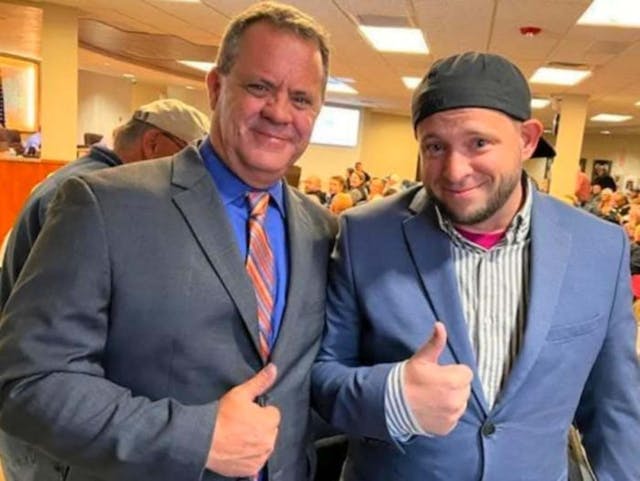
“We immediately set forth on a path to create sanctuary cities for the unborn. The pro-life Superlawyer Jonathan Mitchell designed ordinances that sought to enforce the Federal Comstock Act at the local level I worked as local counsel,” Seibel added. “Soon after that time we worked with Jonathan Mitchell to introduce ordinances in Hobbs and Clovis, New Mexico in September of 2022. On November 7, 2022, the City of Hobbs passed an ordinance containing provisions which sought to enforce provisions of the Comstock Act. This set the stage for other organizations to start to petition for a Comstock to be enforceable.”
“Shortly after Dobbs, Dickson and Mitchell proposed a new brand of ‘sanctuary city’ ordinance in Hobbs, New Mexico, that required abortion clinics operating within city lines to get a license; the licensing requirements, in turn, required compliance with Mitchell and Dickson’s interpretation of the Comstock Act. Other ordinances citing the Comstock Act would follow,” Yale Law authors Siegel and Ziegler wrote.
Legal Cases In Play
“Every rebellion starts with hope,” wrote Seibel shortly after a New Mexico legal ruling, which could end up as a direct Supreme Court challenge to the federal Comstock Act.
Despite the federal Comstock Act remaining active, abortion pills are flooding into states that either restrict abortion or fully protect preborn children except when the life of the mother is at risk. As such, states are struggling to enforce their own laws, and pro-lifers have vowed to use the Comstock Act to fight back.
Now that Roe v. Wade has been overturned, abortion providers in multiple states are openly shipping these drugs “unlawfully” into states that prohibit them or restrict telehealth dispensing. In fact, abortion pills are flooding into states which restrict abortion, sent illegally from abortion providers in outside states who are protected under so-called ‘shield laws.’ As of August 2024, the Williams Institute claimed there are “23 states and Washington, D.C.” which “have shield law protections related to reproductive health care.”
Alliance for Hippocratic Medicine (AHM): During oral arguments in the Alliance for Hippocratic Medicine (AHM) v. Food and Drug Administration (FDA) lawsuit, which challenged the legitimacy of the FDA’s recent expansions of the abortion pill, at least two U.S. Supreme Court justices hinted that the Comstock Act could be in play. While not ruling on the merits of that case, the Court later ruled that the Plaintiffs (the physicians) did not have standing to bring suit.
Since that decision, three states, who likely do have standing, have been approved to intervene in the lawsuit.
State of Missouri; State of Kansas; State of Idaho v. FDA: Earlier this year, U.S. District Judge Matthew Kacsmaryk ruled that the states of Missouri, Kansas, and Idaho could intervene and file a complaint in the AHM abortion pill lawsuit originally filed by a group of pro-life physicians. The three states filed their petition in October of 2024, claiming their “sovereign” interest in “protecting… citizens” was violated by the FDA’s decision to allow mail-order abortion pill dispensing. The plaintiffs requested that the Courts enforce the Comstock Act and grant them the ability to “vindicate [their] sovereign, quasi-sovereign, and proprietary interests, including [their] interests in protecting [their] citizens.”
State of New Mexico v. Board of County Commissioners for Lea County… Roosevelt County, and City of Hobbs: This lawsuit originated in 2023 after the cities of Clovis and Hobbs passed Sanctuary Cities for the Unborn Ordinances, requiring abortion providers to comply with federal law — namely the Comstock Act. Days ago, a New Mexico Supreme Court ruling, which appeared to go against pro-life Sanctuary City Ordinances in the state, “thrilled” pro-life advocates and legal representatives who passed the pro-life measures, because the ruling acknowledged the validity of the federal Comstock Act, which prohibits the mailing of abortion-inducing drugs and other devices.
The Court ruled against Lea and Roosevelt counties and the cities of Clovis and Hobbs, claiming their passage of pro-life ‘Sanctuary Cities for the Unborn‘ ordinances “exceeded their authority by enacting ordinances preempted by state law.”
Following the New Mexico Supreme Court ruling, Dickson, Mitchell, and Seibel responded.
“Every rebellion starts with hope. A rag-tag group of people led by a pastor in a backwards back cap, and a street lawyer well past his prime outlawed abortion… in the most pro abortion state in the Country. In the meantime, save more lives than Schindler and the possibility of the outlawing abortion in the United States. Hope abounds in New Mexico,” attorney Seibel wrote on Facebook.
“We are thrilled with the New Mexico Supreme Court’s ruling. This is the first court to hold that an ordinance requiring compliance with the federal Comstock Act prohibits the shipment and receipt of abortion-related paraphernalia in states where abortion remains legal,” Mitchell said. “We look forward to litigating these issues in other states and bringing the meaning of the federal Comstock Act to the Supreme Court of the United States.”
On his social media accounts, Mark Lee Dickson emphasized that he does not think the New Mexico Supreme Court realizes “what they have done,” suggesting this case could lead to a Supreme Court showdown.
Calls for President Trump and AG Pam Bondi to Enforce Comstock
A coalition of leading pro-life organizations, including Live Action, has sent letters to the FDA and the Department of Justice (DOJ), urging the enforcement of the Comstock Act.
The petition can be signed here.
“If a future president were to enforce these federal statutes, then they could shut down every abortion facility in America,” Dickson claimed.
In 1915, the Brooklyn Daily Eagle described Anthony Comstock as “a man who had one definite purpose in view and never permitted himself to deviate from the pursuit of that purpose.”
His position, the paper noted, “demanded a man of courage, conscience, and severity.”
Being dubbed a modern-day Anthony Comstock does not disturb Dickson. “I am not just looking forward to reading about the end of abortion in the history books, I am interested in being a part of making that history come to fruition. I invite all to join me in that endeavor. With man things are impossible, but with God all things are possible,” Dickson said.
Live Action News is pro-life news and commentary from a pro-life perspective.
Contact editor@liveaction.org for questions, corrections, or if you are seeking permission to reprint any Live Action News content.
Guest Articles: To submit a guest article to Live Action News, email editor@liveaction.org with an attached Word document of 800-1000 words. Please also attach any photos relevant to your submission if applicable. If your submission is accepted for publication, you will be notified within three weeks. Guest articles are not compensated (see our Open License Agreement). Thank you for your interest in Live Action News!
Read Next
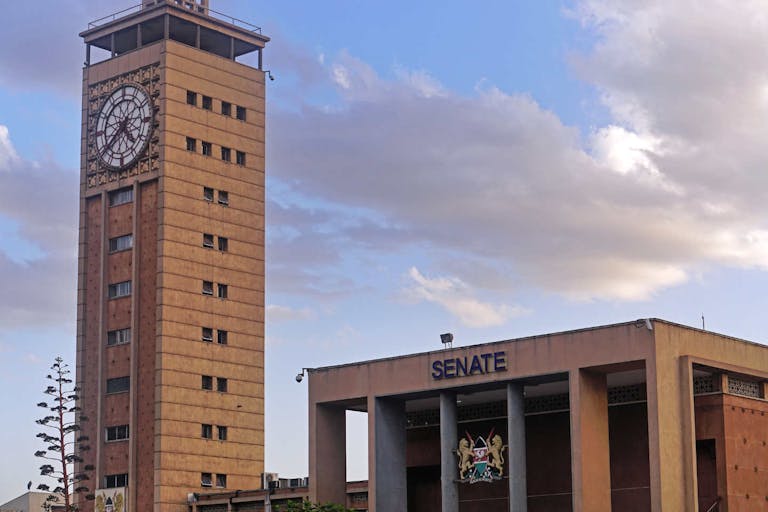
Kenya's Senate awaits public opinion on assisted reproductive technology bill
Angeline Tan
·More In Activism

Activism
Calls to pregnancy support helpline broke records in 2025
Nancy Flanders
·
Guest Column
City of Matador in Texas becomes 92nd ‘Sanctuary City for the Unborn’ in US
Mark Lee Dickson
·
Activism
March for Life 2026 theme reminds us 'Life is a Gift'
Bridget Sielicki
·
Investigative
New pro-life billboard campaign aims to hold abortion industry accountable
Carole Novielli
·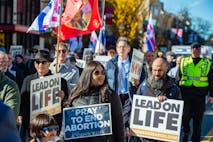
Activism
2025 Pro-Life Highlights: Celebrating a year of pro-life wins
Cassy Cooke
·More From Carole Novielli

Analysis
STAGGERING: Abortion killed 10M more humans in 2025 than all other causes
Carole Novielli
·
Investigative
New pro-life billboard campaign aims to hold abortion industry accountable
Carole Novielli
·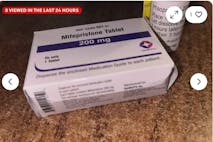
Abortion Pill
This eBay store is selling the abortion pill, putting women in danger
Carole Novielli
·
Abortion Pill
'Destructive of state sovereignty': Louisiana sues to block mail-order abortion pill expansion
Carole Novielli
·
Investigative
Pregnancy centers continue to surpass brick-and-mortar abortion businesses
Carole Novielli
·